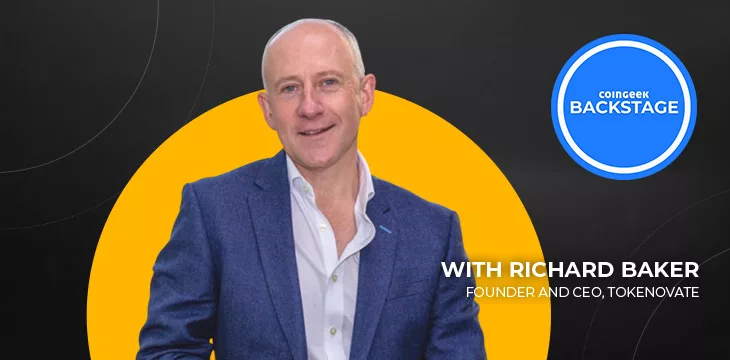|
Getting your Trinity Audio player ready...
|
The London Blockchain Conference was full of exciting announcements about new partnerships and products, but perhaps none bigger than Richard Baker’s launch of voluntary carbon credit markets on the BSV blockchain.
Speaking to CoinGeek Backstage, he says that as blockchain matures, only networks that can scale and focus on utility will win.
“What we’re seeing is a maturity around what a blockchain does. Utility has become more and more important,” Baker told CoinGeek Backstage host Becky Liggero on the sidelines of the event.
“Blockchain has moved into a professional technology conversation.”
Baker has been a key figure in the blockchain world and has been pushing for its adoption for years. He currently heads Tokenovate, a platform that offers lifecycle management for trading derivative contracts.
At the conference, Baker announced that his firm had partnered with Zero13 to execute the first-ever trades in the voluntary carbon credit markets on the Bitcoin blockchain.
Baker has been working closely with several global regulators, including the International Swaps and Derivatives Association (ISDA), the global body whose standards the derivatives market relies on.
ISDA gave its nod for the carbon credit market platform by Tokenovate, with CEO Scott O’Malia stating that it will play a big role in “channeling financing to green projects, technology, and infrastructure that need investment.”
Baker believes that blockchain technology adoption will blow up in the next decade. Some of the world’s largest companies are investing significantly in technology, especially financial service players.
“We’re looking at $30 trillion worth of assets that will be digitized over the next 7-10 years; carbon credits are just one of them.”
At the conference, Baker was also on a panel on ESG initiatives and how blockchain technology can impact the sector. As he told CoinGeek Backstage, blockchain gets a bad rap for its carbon footprint. This criticism is leveled toward the energy-hungry and inefficient BTC network but affects other blockchains by association.
Baker believes that when comparing energy consumption between different blockchains, utility, and efficiency should be key considerations. Otherwise, “you’ll be comparing apples with oranges.”
Watch: CoinGeek TV with Tokenovate’s Richard Baker & John Anderson

 02-16-2026
02-16-2026 




